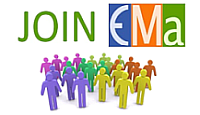Program

List of topics, the program, the slides and recordings for the lectures of ESM 2020.
Detailed timetable: below as graphics (click to enlarge) or as PDF
Lectures
A visual overview of the recordings of all lectures is available here.
Introduction to the School
I. Basic concepts (6h)
- Fields, magnetostatics, units: Olivier Fruchart, Grenoble, France [ Slides | Recording ]
- Origin of magnetism (spin and orbital momentum, atoms and ions, paramagnetism and diamagnetism): Stephen Blundell, Oxford, UK [ Slides | Recording ]
- Exchange interactions, ordering, localized and band magnetism: Stephen Blundell, Oxford, UK [ Slides | Recording ]
- Coupling with the lattice: spin-orbit coupling effects on electrons, magnetic anisotropy and crystal field efects: Julie Staunton, Warwick, UK [ Slides | Recording ]
II. Behavior and functions (7h30)
- Magnetization reversal, from quasistatics to dynamics: Oksana Chubykalo-Fesenko, Madrid, Spain [ Slides | Recording ]
- Micromagnetic modelling: Oksana Chubykalo-Fesenko, Madrid, Spain [ Slides | Recording ]
- Magnetic energy and magnetic circuits: Johan Paulides, Advanced Electromagnetics [ Slides | Recording ]
- Measurements techniques: Thomas Hauet, Nancy, France [ Slides | Recording ]
- Transport and spintronics: Joo-Von Kim, Saclay, France [ Slides | Recording ]
III. Career perspective (1h)
Other activities
Student projects (10h)
Students work in teams of 4/5, each coached by a mentor. Each team tackles a problem, ranging from fundamentals to an industry or societal challenge, to be addressed by Magnetism. Towards the end of the school, each team shortly presents its output to the entire audience of attendees.
Question-Answer sessions (5h)
The purpose of a research School is to provide young scientists with the basics in a working field. With this respect interactivity between students and lecturers should be promoted. Like in the previous editions, a key aspect of this interactivity is the possibility to raise questions at the end as well as during the course of the lectures. Besides, several sessions dedicated to questions are scheduled, during which the lecturers or voluntary attendees present in more detail issues raised by the attendees during the lectures, a chat or anonymously. See the list of questions raised in 2018. A dedicated chat will remain open during and beyond the school, linking the attendees with lecturers and mentors.
Posters (3h)
We encourage participants to prepare posters, to be presented to smal audiences in dedicated chat rooms.








